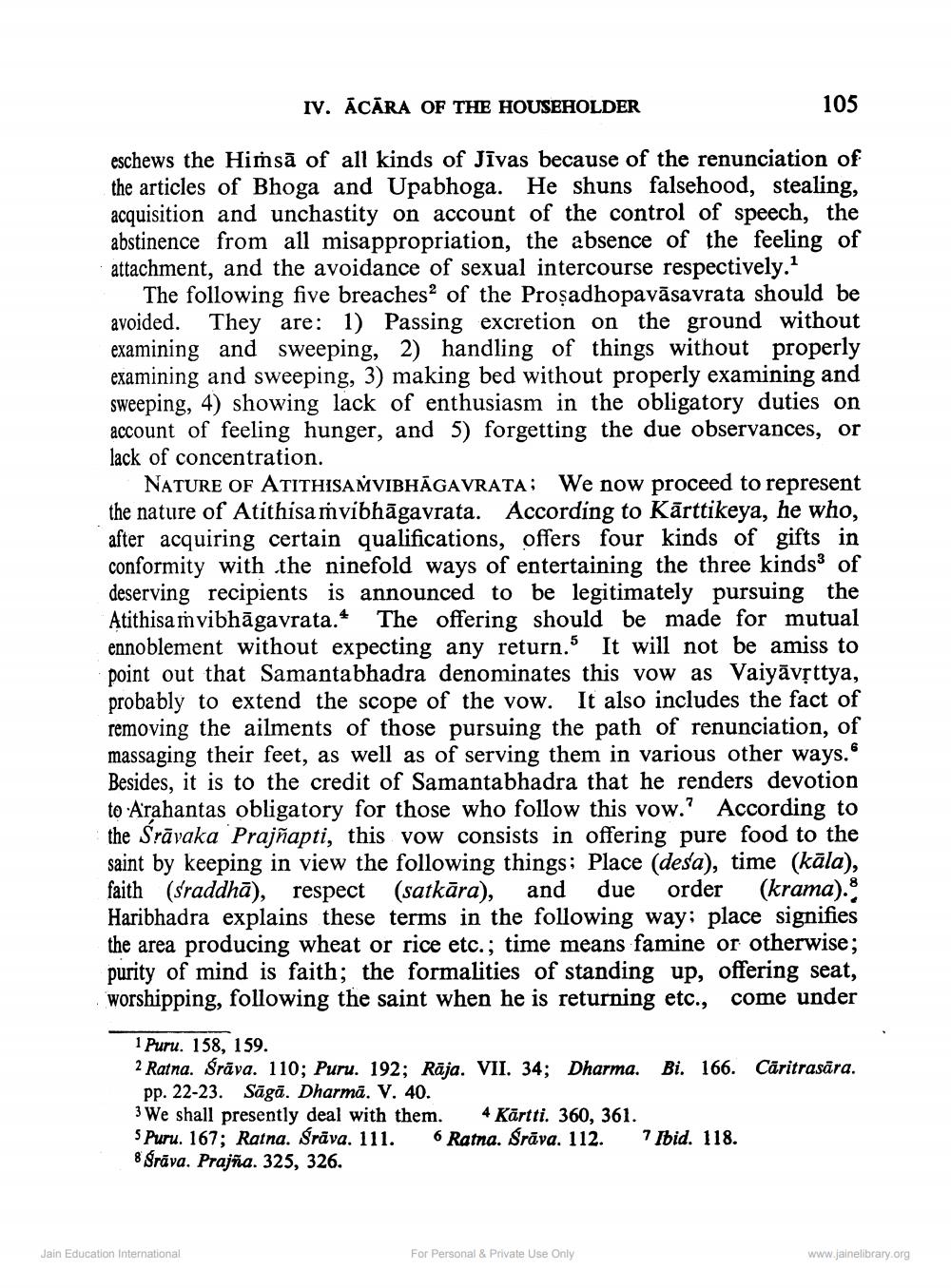________________
IV. ĀCĀRA OF THE HOUSEHOLDER
105
eschews the Himsā of all kinds of Jīvas because of the renunciation of the articles of Bhoga and Upabhoga. He shuns falsehood, stealing, acquisition and unchastity on account of the control of speech, the abstinence from all misappropriation, the absence of the feeling of attachment, and the avoidance of sexual intercourse respectively.
The following five breaches of the Prosadhopavāsavrata should be avoided. They are: 1) Passing excretion on the ground without examining and sweeping, 2) handling of things without properly examining and sweeping, 3) making bed without properly examining and sweeping, 4) showing lack of enthusiasm in the obligatory duties on account of feeling hunger, and 5) forgetting the due observances, or lack of concentration.
NATURE OF ATITHISAMVIBHĀGAVRATA; We now proceed to represent the nature of Atithisa mvibhāgavrata. According to Kārttikeya, he who, after acquiring certain qualifications, offers four kinds of gifts in conformity with the ninefold ways of entertaining the three kinds of deserving recipients is announced to be legitimately pursuing the Atithisam vibhāgavrata. The offering should be made for mutual ennoblement without expecting any return. It will not be amiss to point out that Samantabhadra denominates this vow as Vaiyāvșttya, probably to extend the scope of the vow. It also includes the fact of removing the ailments of those pursuing the path of renunciation, of massaging their feet, as well as of serving them in various other ways. Besides, it is to the credit of Samantabhadra that he renders devotion to Arahantas obligatory for those who follow this vow.? According to the Srāvaka Prajñapti, this vow consists in offering pure food to the saint by keeping in view the following things; Place (desa), time (kāla), faith (Sraddhā), respect (satkāra), and due order (krama). Haribhadra explains these terms in the following way; place signifies the area producing wheat or rice etc.; time means famine or otherwise; purity of mind is faith; the formalities of standing up, offering seat, worshipping, following the saint when he is returning etc., come under
Căritrasāra.
1 Puru. 158, 159. 2 Ratna. Srāva. 110; Puru. 192; Rāja. VII. 34; Dharma. Bi. 166. pp. 22-23. Sāgā. Dharmā. V. 40. 3 We shall presently deal with them. 4 Kārtti. 360, 361. 5 Puru. 167; Ratna. Srāva. 111. Ratna. Śrāva. 112. 7 Ibid. 118. 8 Srāva. Prajña. 325, 326.
Jain Education International
For Personal & Private Use Only
www.jainelibrary.org




